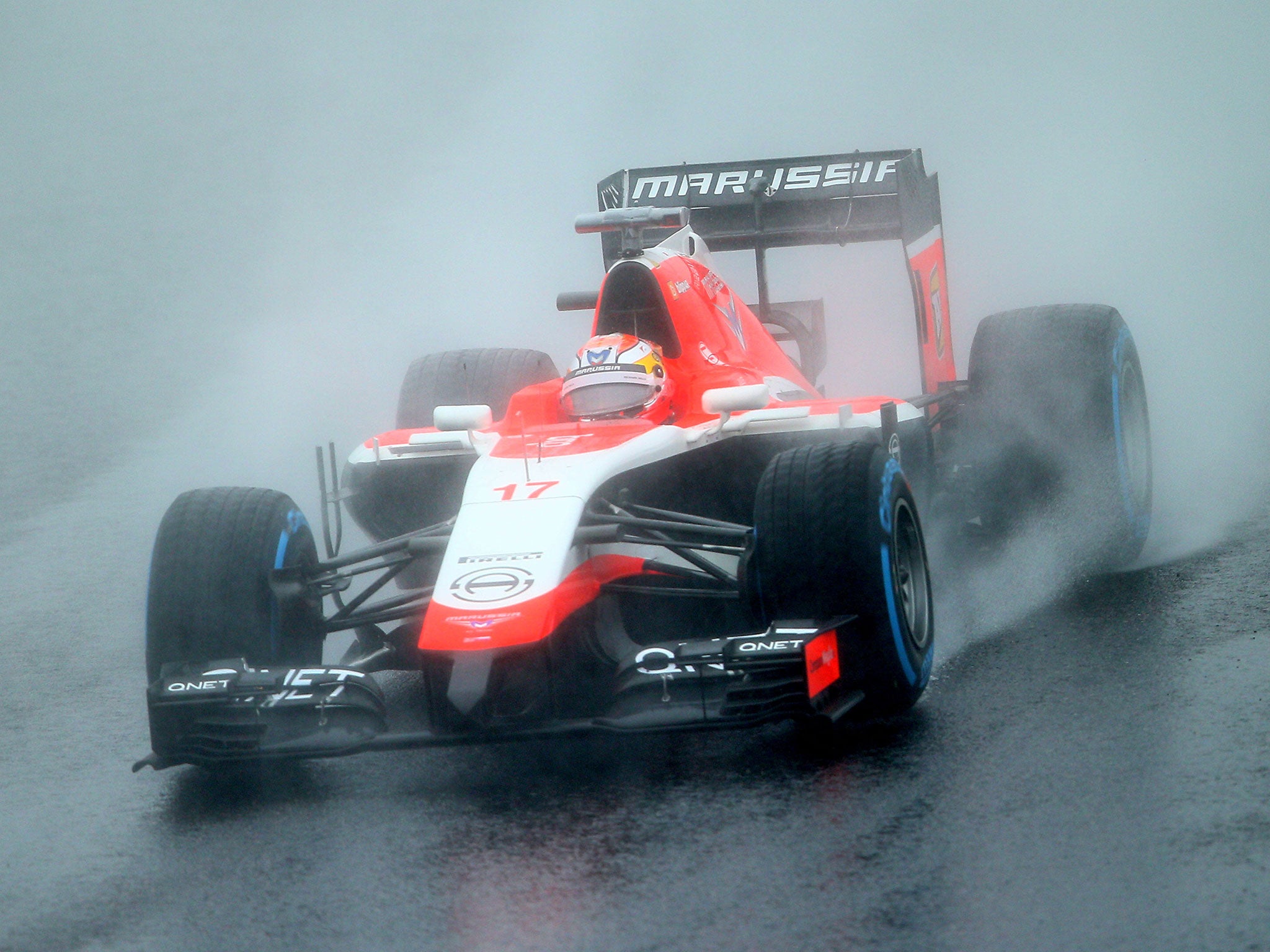If it took Jules Bianchi's life-threatening crash for a change in F1, then the sport is in a much worse place than first thought
Bianchi is fighting for his life after suffering serious head injuries in a collision with a recovery vehicle during the Japanese Grand Prix

Jules Bianchi’s life-threatening crash at the Japanese Grand Prix has once again highlighted that Formula One can be a very dangerous sport, despite 20 years passing since the death of a driver at a race weekend.
Not since 1994 has the sport been clouded by tragedy, when the sad passing of both Ayrton Senna and Roland Ratzenberger saw motorsport hit one of its most haunting weekends in its history at the San Marino Grand Prix at Imola.
While there have been very serious accidents since that black weekend, the sport has made huge strides in car safety to ensure the drivers stand a good chance of surviving a heavy accident. Unfortunately, Bianchi’s accident where he hit a recovery vehicle that was attending the crash site of Adrian Sutil’s Sauber has exposed what a dangerous proposition it can be to drive these thoroughbred racing cars at speeds in excess of 200mph.
However, this time we’re not looking at the safety of the cars – although that will inevitably come into question over the next few weeks. Instead, we’re looking at something much simpler than the complicated designs of a Formula One car. We’re looking at a decision of when to start the race, and the proposition of a 25-year-old man losing his life because of the wrong decision is truly unacceptable.
Throughout the week leading up to Sunday’s race at Suzuka, the talk of the paddock was whether Typhoon Phanfone was going to have an impact on the afternoon start – scheduled for 3pm local time. Now answer me this: can you drive an F1 car in typhoon conditions? There’s only one answer.
By simply moving the race forward to 11am as proposed by the FIA, the race would have missed the brunt of the bad weather. Yet the race organisers and circuit owners Honda refused – twice – to budge on their start time, believing that a change would have a serious impact on the number of fans both at the track for the start and watching worldwide. Viewers in the United Kingdom had to get up by 7am to watch the race live, but this is not uncommon for the fly-away races and committed fans would be prepared to alter their alarm clock by a few hours.
Instead the race was scheduled as planned, and as a consequence saw a torrential downpour force the race to be started behind the safety car for all of one-and-a-half laps before the first red flag was thrown.
The race was able to get away properly after a prolonged delay on lap 10, and the on-track conditions weren’t actually that bad. A lot of the standing water had been washed away by the cars parading around behind the safety car, but it was the poor visibility that was proving the biggest problem due to the large amounts of spray the cars were throwing up.
When the rain came back towards the end of the race, the track conditions significantly worsened, but the 33 laps in between the green flag and second red flag were safe to drive in. There was overtaking, flat-out racing, and it was commendable to all 21 drivers left in the race that there hadn’t been a single accident to report, bar a few minor excursions off the track.
Things must change if the sport is to move forward. Allowing a simple decision such as moving the start time would be a minuscule change compared to those that have been implemented since 1994, and indeed the years before Senna’s and Ratzenberger’s untimely death. If the situation was that it required Bianchi’s accident to happen before the influence of power in F1 was questioned, then the sport is in a much worse place than first thought.
Subscribe to Independent Premium to bookmark this article
Want to bookmark your favourite articles and stories to read or reference later? Start your Independent Premium subscription today.

Join our commenting forum
Join thought-provoking conversations, follow other Independent readers and see their replies